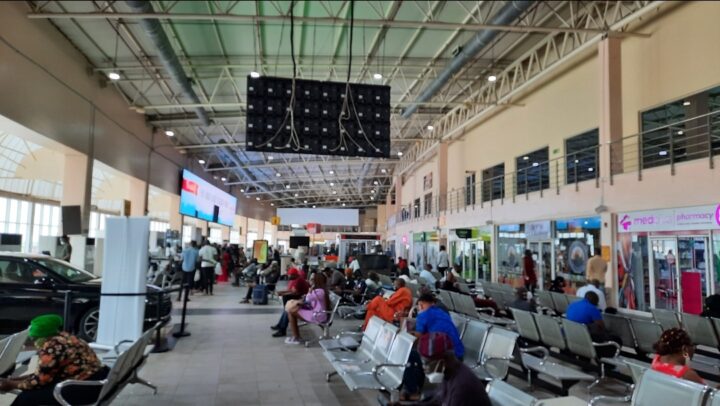BY IKENNA NZEWI
Africa’s expected population boom is a clarion call to build efficient food systems to secure future prosperity. We must recognise that our farmers are the backbone of our food system.
Unfortunately, the absence of effective tools means many farmers spend their time doing backbreaking work with little return. For example, in the oil palm sector, many farmers still use rocks to deshell palm nuts by hand. This drudgerous process also means they are less likely to produce factory-grade nuts — and their nuts are either sold cheaply or go to waste.
On the flip side, food factories typically have three times more installed capacity than utilisation due to scarcity of quality raw materials and the capital to purchase them. This combination of issues is just a glimpse of the challenge facing our food production industry. It also points to how we can make the progress we need.
Advertisement
The World Food Day 2021 theme supports the case for industrialisation
Unfortunately, our farmers are not reaping the commensurate reward for their labour, and this is where industrialisation can make a transformational difference. In the 21st century, there is no reason why farmers should rely on handheld rocks to process food. Our burgeoning technology sector has shown that Africa is capable of developing effective solutions to its problems. We have seen a wide range of innovations from fintech and eCommerce to healthcare and, of course, agriculture. This new wave of innovation can be channelled towards developing technology that will consolidate our food systems and position farmers for long-term prosperity.
The World Food Day theme, “Our actions are our future. Better production, better nutrition, a better environment, and a better life,” supports the industrialisation case.
Advertisement
Industrialisation has moved more people out of poverty in the shortest period than any other phenomenon in the history of the world. From the United States and Great Britain to China and South Korea, industrialisation has provided the most direct route to long-lasting and broad-based shared prosperity across the world and it is certainly something we can benefit from in Africa as well.
Building on existing systems
This year’s World Food Day theme of “betters” – better production, better nutrition, better environment and a better life – really resonates with our ethos at Releaf. Particularly “better production.” As we explore ways to build better food systems across the continent, we must build on systems already in place.
In the early days of Releaf, my co-founders and I travelled to at least 20 states across Nigeria — by road — to understand how the value chain worked. We went from farm to market and everywhere in between, and it was only after this exploration that we could identify real pain points that we could address. We could have tried to re-engineer the system, but history tells us that this approach doesn’t work. Whatever modernisation or industrialisation that will happen must happen in a truly African context. There is no need — or time — to reinvent the wheel.
Advertisement
Harnessing the energy of young people
I was privileged to be one of the winners of the African Development Bank’s AgriPitch competition — an annual event that encourages a culture of innovation and nurturing for technology-led agribusiness to create jobs and improve youth livelihoods. The competition reminded me of the potential that abounds among Africa’s young people and our desire to develop solutions to the continent’s challenges. Africa has the largest share of young people globally, with 75% of the continent’s population below the age of 35. About 65% of youth in Africa also live in rural areas and are employed primarily in the agriculture sector.
When you combine these facts with the reality that young people are typically more open to new ideas and innovation, we just might be looking at what the continent needs to achieve the transformation it needs.
As we prepare for the exponential growth in our population, we need to address the challenges that have held our farmers back and put structures in place to ensure future prosperity. Whatever we do to address challenges farmers have faced will address issues from the past and position the continent for the long-term prosperity we all desire.
Advertisement
Ikenna Nzewi is an African Development Bank’s AgriPitch competition winner. He is CEO and co-founder of Releaf, an agtech startup that develops proprietary hardware and software solutions to drive the industrialisation of food processing in Africa.
Advertisement
Views expressed by contributors are strictly personal and not of TheCable.
Add a comment






